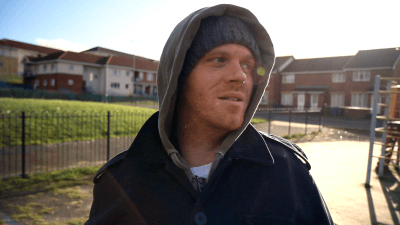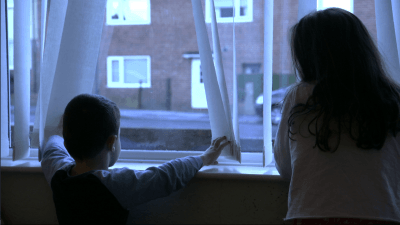Review: The Divide
April 21, 2016

[Images courtesy of Dartmouth Films & Literally Films]
On Tuesday 19th, I went along to the lovely Hyde Park Picture House to watch the northern premiere of The Divide. The showing was part of Summat 2016 and was followed by a Q & A with the director and producer of the film – Katharine Round, and living wage campaigner Thomas Chigbo. Having already previewed the film here, I had an idea of its roots and where the focus might be placed before I went in. I would highly recommend taking a look at the preview, where I provide an outline of the film and offer some insight into director Round’s background and her own interests. However, for all of you busy professionals/procrastinating students here’s a little snippet of background information for you:
Inspired by the best-selling book ‘The Spirit Level’, The Divide tells the story of 7 individuals striving for a better life in modern day USA and UK – where the top 0.1% owns as much wealth as the bottom 90%. Utilising footage of news archives alongside real stories from real people, this documentary sets out to explore how the size of the gap between the rich and poor governs so much of our lives, revealing a truth that a higher income doesn’t necessarily ensure happiness; inequality hurts us all – rich and poor.

It is often the case that descriptions such as these do not entirely reflect the final product, instead being offered predominantly to promote and shed light on a specific and desirable viewpoint, regardless of the quality of the film itself. However, in this case, the documentary did not fall short of the promotional material preceding it. Not only is it visually and aesthetically ambitious, spanning several cities across the UK and the USA via beautifully captured footage, but it also manages to successfully explore the lives of seven very different individuals from varying walks of life. Given the troublesome and controversial subject matter, I was struck by the film’s ability to inject moments of humour and lightness throughout the narrative. It manages to achieve a perfect balance between serious, emotional content and an unapologetically humorous and light-hearted inflection that I found to be wholly refreshing and entirely necessary.

Of course, this balance between humour and depth is equally reliant on the openness and the honesty of the cast themselves as well as on Round’s own direction and vision. Finding the right people to be involved must have been incredibly daunting, especially given the film’s focus on both the UK and the USA. Had the balance between the perceived ‘rich’ and ‘poor’ been ever so slightly rocked I don’t think the film would have worked as well as it does. Somebody during the Q & A posited that Round does not succeed in interviewing the extremes of society, suggesting that the film focuses on a middle-ground. I found Round’s answer to the question especially pertinent;
‘I never set out to find the top or bottom percent, and that isn’t what the film is trying to do. Instead, I want to explore the shared experience of humanity, the nuances of what it means for us to live in the world we live in.’ [paraphrased]
It is this communication of a shared experience that I think the film achieves so well. It manages to bring together the experiences of the many; from an American Wall Street psychologist to an English careworker from across the globe, the striking similarities of human life are highlighted. Filming them doing basic, every-day tasks such as brushing their teeth and washing their face serves to create an invisible thread between lives. It is often easy to exist inside your own isolated bubble of yourself, your friends and your family, and what I think this film does is break this bubble. It highlights the impossibility of such an existence, serving as a reminder of our lives as one amongst millions as opposed to one amongst a few.

Therefore, it comes as no surprise that the response towards the film has been predominantly political. Out of approximately eight questions asked at the end of the screening, seven of them were questions which would not have been out of place at a political debate: what is our responsibility in regards to the living wage? How is the gap perceived from country to country and city to city? The very success of the film lies in the fact it inspires such questions; art and politics are not two separate points of discussion, but are instead impossibly interwoven and inter-related. The film facilitates this relationship brilliantly, both entertaining and moving the audience to burst the bubble of passivity and/or ignorance. Supported by an excellent cast and crew, alongside stunning photography and an accompanying musical score, this documentary truly is a feat to be celebrated.
THE DIVIDE is in UK cinemas from 22 April 2016.
www.thedividedocumentary.com
@thedividefilm @katharineround
http://www.facebook.com/DivideFilm

Comments